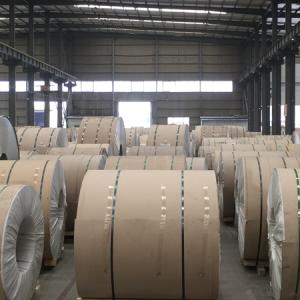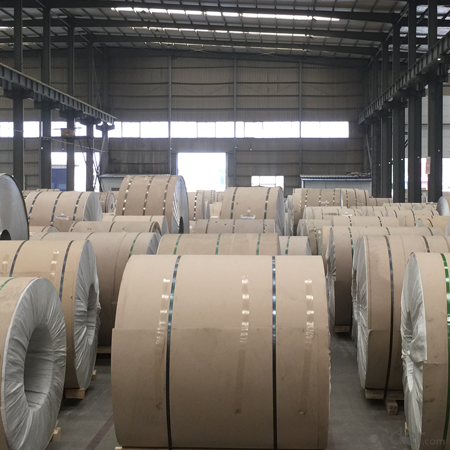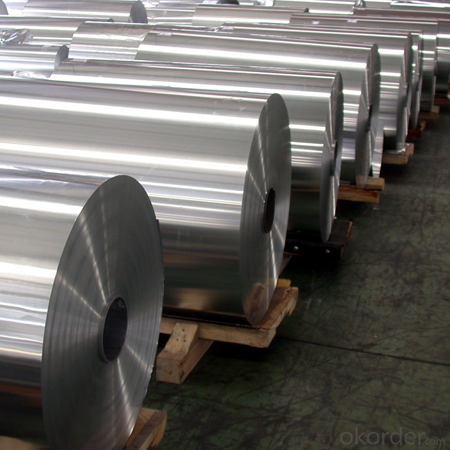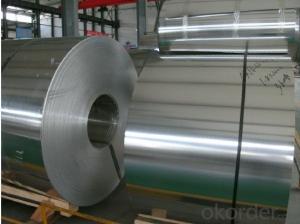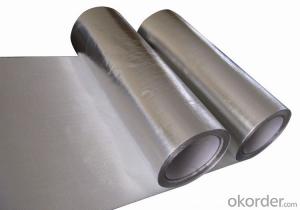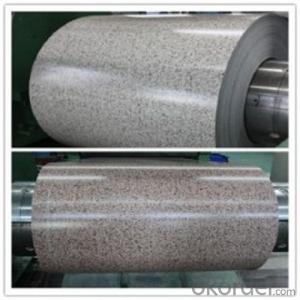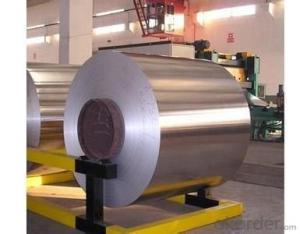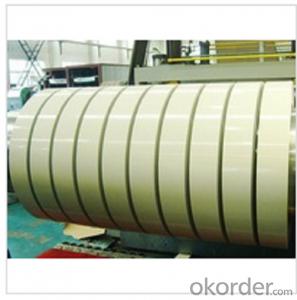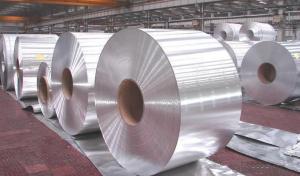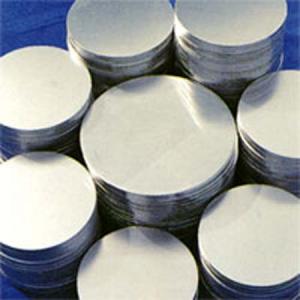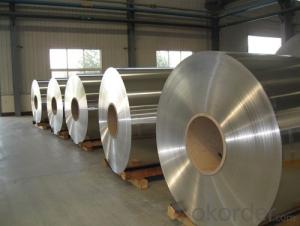Marine Grade 3mm 4mm 5mm Thickness Aluminum Sheet Coil Price
- Loading Port:
- Shanghai
- Payment Terms:
- TT OR LC
- Min Order Qty:
- 5 m.t.
- Supply Capability:
- 5000 m.t./month
OKorder Service Pledge
Quality Product, Order Online Tracking, Timely Delivery
OKorder Financial Service
Credit Rating, Credit Services, Credit Purchasing
You Might Also Like
Specification
Grade:
1000 Series,5000 Series,7000 Series,3000 Series
Surface Treatment:
Coated,Mill Finish,Color Coated,Oxidized
Shape:
Round,Flat
Temper:
O-H112,Soft,Half Hard,Hard
Application:
Decorations,Door & Window,Transportation Tools,Glass Wall,Kitchen Use
Technique:
Cold Drawn
Thickness:
0.05-4.0mm
Width:
200mm---980mm
Net Weight (kg):
2.5 ton
Packaging:
Wooden pallets
Prime Quality 3003 Aluminium Coil , 3003 Aluminum Roll
Packaging & Delivery
Product Specification | |
Grade | 1000 Series: 1050 1060 1100 3000 Series: 3003 3004 3105 5000 Series: 5052 5605,5083 6000 Series: 6061 6063 8000 Series: 8011 8021 8079 |
Thickness | 0.20-8.00mm |
Width | 2400mm max. |
Grade | 1000,3000,5000,6000,8000series |
Coil ID | 75mm, 150mm, 200mm, 300mm, 400mm, 508mm or negotiable |
Coil weight | 1000-5000kgs |
Coil OD | 1700mm max. |
Temper | O, H12, H14, H16, H111, H22 ,H24, H26, H28,T4, T6,etc. |
| Temper | |
| F | processing state |
| H | strain hardening state |
| O | annealing |
| T | heat treatment state |
| H112 | pure state of strain hardening, adjustment has been made to degree of strain hardening and annealing |
| T4 | solid solution treatment and natural efficiency to achieve sufficient stability condition |
| T5 | artificial aging condition of the reentry after high temperature thermal cooling |
| T6 | artificial aging state after solid solution treatment |
Chemical Composition | |||||||||
| Grade | Si | Fe | Cu | Mn | Mg | Cr | Ni | Zn | Al |
| 1050 | 0.25 | 0.4 | 0.05 | 0.05 | 0.05 | - | - | 0.05 | 99.5 |
| 1060 | 0.25 | 0.35 | 0.05 | 0.03 | 0.03 | - | - | 0.05 | 99.6 |
| 1070 | 0.2 | 0.25 | 0.04 | 0.03 | 0.03 | - | - | 0.04 | 99.7 |
| 1100 | Si+Fe:0.95 | 0.05-0.2 | 0.05 | - | - | 0.1 | - | 99 | |
| 1200 | Si+Fe:1.00 | 0.05 | 0.05 | - | - | 0.1 | 0.05 | 99 | |
| 1235 | Si+Fe:0.65 | 0.05 | 0.05 | 0.05 | - | 0.1 | 0.06 | 99.35 | |
| 3003 | 0.6 | 0.7 | 0.05-0.2 | 1.0-1.5 | - | - | - | 0.1 | remains |
| 3004 | 0.3 | 0.7 | 0.25 | 1.0-1.5 | 0.8-1.3 | - | - | 0.25 | remains |
| 3005 | 0.6 | 0.7 | 0.25 | 1.0-1.5 | 0.20-0.6 | 0.1 | - | 0.25 | remains |
| 3105 | 0.6 | 0.7 | 0.3 | 0.30-0.8 | 0.20-0.8 | 0.2 | - | 0.4 | remains |
| 3A21 | 0.6 | 0.7 | 0.2 | 1.0-1.6 | 0.05 | - | - | 0.1 | remains |
| 5005 | 0.3 | 0.7 | 0.2 | 0.2 | 0.50-1.1 | 0.1 | - | 0.25 | remains |
| 5052 | 0.25 | 0.4 | 0.1 | 0.1 | 2.2-2.8 | 0.15-0.35 | - | 0.1 | remains |
| 5083 | 0.4 | 0.4 | 0.1 | 0.40-1.0 | 4.0-4.9 | 0.05-0.25 | - | 0.25 | remains |
| 5154 | 0.25 | 0.4 | 0.1 | 0.1 | 3.1-3.9 | 0.15-0.35 | - | 0.2 | remains |
| 5182 | 0.2 | 0.35 | 0.15 | 0.20-0.50 | 4.0-5.0 | 0.1 | - | 0.25 | remains |
| 5251 | 0.4 | 0.5 | 0.15 | 0.1-0.5 | 1.7-2.4 | 0.15 | - | 0.15 | remains |
| 5754 | 0.4 | 0.4 | 0.1 | 0.5 | 2.6-3.6 | 0.3 | - | 0.2 | remains |
| 6061 | 0.40-0.8 | 0.7 | 0.15-0.40 | 0.15 | 0.8-1.2 | 0.04-0.35 | - | 0.25 | remains |
| 6063 | 0.20-0.6 | 0.35 | 0.1 | 0.1 | 0.45-0.9 | 0.1 | - | 0.1 | remains |
| 6082 | 0.7-1.3 | 0.5 | 0.1 | 0.40-1.0 | 0.6-1.2 | 0.25 | - | 0.2 | remains |
| 6A02 | 0.50-1.2 | 0.5 | 0.20-0.6 | Or Cr0.15-0.35 | 0.45-0.9 | - | - | 0.2 | remains |
| 8011 | 0.50-0.9 | 0.6-1.0 | 0.1 | 0.2 | 0.05 | 0.05 | - | 0.1 | remains |
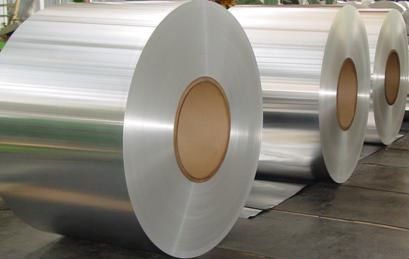
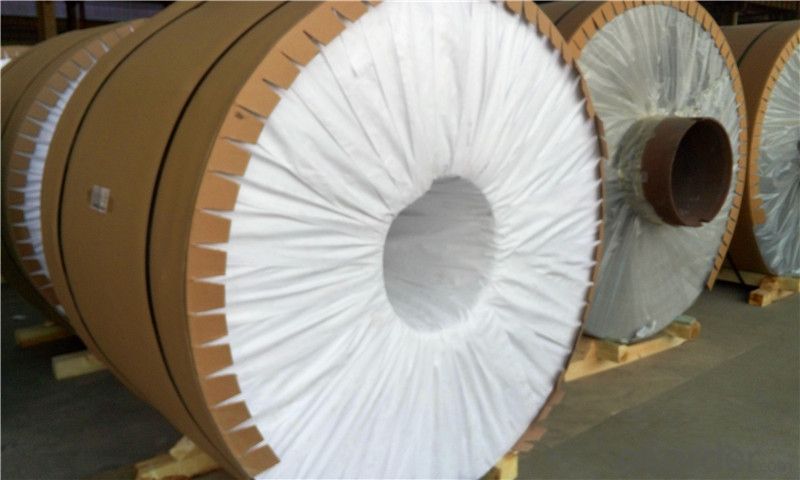
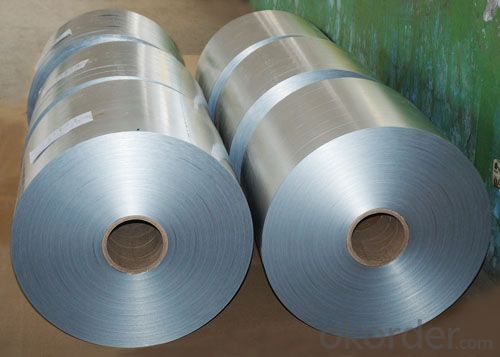
- Q: This question seeks to understand the environmental impact of discarded aluminum coils.
- <p>Discarded aluminum coils can have significant environmental impacts. They contribute to landfill waste and can potentially leach harmful substances into the soil and water if not properly managed. Aluminum production is energy-intensive, so recycling discarded coils reduces the demand for raw materials and conserves energy. However, if left in the environment, aluminum can also contribute to pollution and disrupt ecosystems. Proper recycling and disposal methods are crucial to mitigate these effects and promote sustainability.</p>
- Q: How are aluminum coils joined or welded?
- Aluminum coils are usually joined or welded using various methods such as resistance welding, TIG (Tungsten Inert Gas) welding, MIG (Metal Inert Gas) welding, or laser welding. These techniques involve applying heat and pressure to melt and fuse the aluminum coils together, creating a strong and durable joint.
- Q: What are the potential applications of coil-painted aluminum coils?
- Coil-painted aluminum coils possess a vast array of potential uses across multiple industries. Before being molded and transformed into various products, aluminum coils are coated with paint through the coil-painting process. This procedure improves the resilience and visual attractiveness of the aluminum, making it suitable for diverse applications. Within the construction sector, coil-painted aluminum coils can be employed for roofing, siding, and façade systems. The paint provides an additional layer of defense against corrosion and weathering, guaranteeing the durability of the building materials. Moreover, the wide range of colors and finishes available in coil-painted aluminum allows for customization and design flexibility in architectural projects. Another field where coil-painted aluminum coils find utility is the automotive industry. Car body panels, trim, and other exterior components can be manufactured using coil-painted aluminum. The paint ensures a smooth and uniform finish, enhancing the vehicle's aesthetics. Furthermore, the lightweight nature of aluminum makes it an ideal material for enhancing fuel efficiency, and the coil-painting process further strengthens its resistance to scratches and UV-induced fading. Coil-painted aluminum coils are also utilized in the production of appliances, such as refrigerators, ovens, and air conditioning units. The painted surface not only enhances the appearance of the appliances but also safeguards them against corrosion and wear and tear. The malleability of coil-painted aluminum allows for the efficient production of diverse appliance components in different shapes and sizes. Additionally, coil-painted aluminum is commonly employed in the signage industry. The vibrant colors and durable finish achieved through the coil-painting process make it an exceptional choice for both indoor and outdoor signage. Aluminum coils can be easily cut, shaped, and molded into various sign types, including channel letters, lightboxes, and dimensional signs. In conclusion, coil-painted aluminum coils have a broad range of potential applications. Whether in construction, automotive, appliances, or signage, the enhanced durability, aesthetic appeal, and customization options of coil-painted aluminum make it a versatile material for manufacturing purposes.
- Q: Is it possible to use a soldering iron to fix a damaged or broken aluminum coil?
- <p>Using a soldering iron to repair an aluminum coil is not typically effective. Aluminum has a high thermal conductivity and doesn't bond well with solder, making it difficult to create a strong joint. Instead, consider using specialized aluminum welding techniques or brazing, which involves using a filler metal with a melting point higher than the base metal. For small repairs, you might also explore the use of aluminum repair epoxy or other adhesives designed for metal bonding. Always ensure to follow safety precautions and consult with a professional if the repair is complex or if the coil is part of a critical system.</p>
- Q: Can aluminum coils be used in the production of aluminum louvers?
- Yes, aluminum coils can be used in the production of aluminum louvers. Aluminum coils are a common raw material used in various industries, including the manufacturing of louvers. Aluminum coils are typically processed and formed into the shape and design required for louvers, providing the necessary strength and durability. The use of aluminum coils also allows for flexibility in design and customization of louvers to meet specific requirements. Additionally, aluminum is a lightweight and corrosion-resistant material, making it suitable for louvers that may be exposed to outdoor conditions. Overall, aluminum coils are widely used in the production of aluminum louvers due to their numerous advantages and suitability for this application.
- Q: Can aluminum coils be used in the manufacturing of cans and containers?
- Yes, aluminum coils are commonly used in the manufacturing of cans and containers. Aluminum is lightweight, durable, and resistant to corrosion, making it an ideal material for packaging food and beverages. The coils are typically processed and shaped into desired can or container forms before being used in the manufacturing process.
- Q: What are the insulation options available for aluminum coils?
- Depending on the specific requirements and applications, there are various insulation options available for aluminum coils. Some commonly used insulation options include: 1. Foam Insulation: Aluminum coils are often insulated with foam, which provides excellent thermal insulation properties. Foam insulation comes in different forms, such as rigid foam boards or flexible foam sheets, and can be easily cut and fitted around the coils. 2. Fiberglass Insulation: Another popular choice for aluminum coil insulation is fiberglass. It consists of thin glass fibers woven together to create a blanket-like material. Fiberglass insulation is lightweight, easy to install, and offers good thermal and acoustic insulation. 3. Mineral Wool Insulation: Mineral wool insulation is made from natural or synthetic minerals that are melted and spun into fine fibers. It is known for its excellent fire-resistance properties and provides effective thermal insulation for aluminum coils. 4. Reflective Insulation: To reflect radiant heat away from the aluminum coils, reflective insulation is used. It typically consists of a layer of aluminum foil laminated to a layer of fiberglass or plastic bubble wrap. Reflective insulation is particularly effective in warmer climates where reducing heat gain is a priority. 5. Vapor Barrier Insulation: Vapor barrier insulation is applied to prevent moisture transfer through the insulation material. It is often used as a coating or film over the insulation, creating a barrier against water vapor and reducing the risk of condensation buildup on the aluminum coils. When selecting the appropriate insulation option for aluminum coils, it is important to consider factors such as thermal conductivity, fire resistance, moisture resistance, and installation requirements. Consulting with a professional or referring to manufacturer guidelines can help determine the most suitable insulation option for specific coil applications.
- Q: Can aluminum coils be used for sound insulation?
- Indeed, sound insulation can be achieved by employing aluminum coils. By virtue of its high density and capacity to absorb and disperse sound waves, aluminum possesses exceptional qualities for soundproofing purposes. When utilized in the form of coils, aluminum effectively obstructs and reflects sound, thereby diminishing noise transmission and furnishing insulation. Moreover, aluminum coils boast effortless installation and exhibit resistance against corrosion, rendering them a robust and enduring choice for soundproofing applications.
- Q: i want to save some money on my electricity bill, and i heard that aluminum foil rejects the heat that goes through the windows, also does it work with the cold?
- looks like you got a grow your own lab. watch for unmarked van out side your house
- Q: i dont want aluminum cookware, but how about a stainless steel set with an aluminum core. Is this the same as aluminum pots and pans? Thanks.
- The aluminum is encased in the stainless steel, usually as a thick disk in the bottom. It is an excellent conductor of heat and holds the heat well once it gets hot. All you see is the stainless, none of the aluminum because it's between two layers of stainless in the bottom of the pots. You are right, you don't want food cooked in straight aluminum, some metal taste can transfer to certain foods. That won't happen with stainless.
Send your message to us
Marine Grade 3mm 4mm 5mm Thickness Aluminum Sheet Coil Price
- Loading Port:
- Shanghai
- Payment Terms:
- TT OR LC
- Min Order Qty:
- 5 m.t.
- Supply Capability:
- 5000 m.t./month
OKorder Service Pledge
Quality Product, Order Online Tracking, Timely Delivery
OKorder Financial Service
Credit Rating, Credit Services, Credit Purchasing
Similar products
Hot products
Hot Searches
Related keywords
